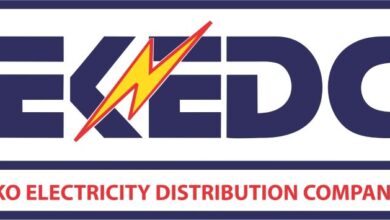Budget 2014: Fears As Oil Revenue Drops
By Alphonsus E.W
The Managing Director/Chief Executive Officer, Financial Derivatives Company Limited (FDC), Mr. Bismarck Rewane has raised an alarm that the decline in Nigeria’s crude oil revenue this year may negatively affect the budget framework for 2014.
He made the remark during the presentation of a report at the Lagos Business School. He noted that this might compel the federal government to initiate policies such as an increase in taxation, subsidy removal or the enforcement of due process going forward.
The federal government last week said it was targeting N2.95 trillion in tax revenue from the non-oil sector in 2014 by going after tax evaders.
Coordinating Minister for the Economy and Minister Finance, Dr. Ngozi Okonjo-Iweala, said over 75% of small-scale business operators in the country had the proclivity for tax evasion in the country. However, while lending his views on the events to watch in 2014, Rewane argued that there could be an oil price shock which may cause prices to decrease on increased supplies and relative calm in the Middle-east. This could translate to less revenue to the government.
Furthermore, Rewane pointed out that there may be a depreciation of the naira and further hike in the Cash Reserve Requirement (CRR).
He also noted that the anticipated hike in CRR would lead to mopping up of liquidity and thereby impacting on banks’ profitability. Specifically, he argued that 30 per cent of banks’ profit may be eroded.
“Banks may remain attractive despite impact on profits. The Central Bank of Nigeria (CBN) targets a low-inflation rate of six to nine per cent in 2014. Further monetary policy tightening anticipated in January. Coordination between fiscal and monetary policy required to ensure stability,” he added.
According to Rewane, the rapidly-growing internet penetration in the country increases the use of smart phones and tablets. The number of active mobile GSM lines rose to about 118 million in September 2013, from 109 million at the end of 2012.
Mobile internet data subscription also improved to 50 million subscribers in July 2013, from 31 million subscribers in 2012.
He listed some of the challenges in the retail industry to include huge infrastructure deficit estimated at $360 billion, lack of inclusive growth, weak productivity compared to global standards and inadequate access to finance. Others include high administrative cost, export performance which had been dampened by slowdown in commodity prices, regulatory pressure and political impasse.
Rewane described 2013 as a year of mixed fortunes for the country, noting that while inflation, money supply, stock market capitalisation improved; government revenue, the parallel exchange rate, external reserves, excess crude account, aviation safety depreciated.












